The Health Benefits of Morning Sun: Why You Should Rise Early
For many of us, it’s not easy waking early in the morning. It’s especially tough if you burn the midnight oil watching Netflix because it’s easier to watch another show rather than get up and go to bed. Yet, rising with the sun is one of my strongest pieces of advice for optimal well being because there are just so many health benefits of
What are the health benefits of morning sun?
Firstly, let’s consider why our biology is wired to rise early (even if it doesn’t feel that way when your alarm clock goes off first thing!).
All of us has a circadian rhythm, which is the internal clock that tells our body when it should be awake and alert and when it should be tired and sleeping. You might call it your ‘body clock’.
Now, our circadian rhythm is affected by a number of factors but one of the biggest is our light environment.
As explained by Sleep Foundation, when it’s dark outside, our eyes naturally signal to our brains that it’s time to feel tired. Our body then releases melatonin, which is the chemical which makes our body tired and puts us to sleep.
Likewise, when it’s light outside, our circadian rhythm tells us we should be awake.
Morning light sets off a cascade of hormones and neurotransmitters which make you feel good.
It makes complete sense then, that the closer we align to the natural light of day, the healthier we will feel.
The science of morning sun and why it’s good for health
Light is made up of a number of wavelengths from blue to red, as well as some invisible ones: infrared light and ultraviolet light.
Whilst we only ever seem to hear about the importance of Vitamin D which is made by UVB, morning sun is actually incredibly important because it’s saturated in infrared and blue light. There is no UV light first thing in the morning – neither UVA or UVB.
Sunlight is 42% infrared light. It’s important. It stimulates collagen, increases bone healing and heals wounds. It’s why red light therapy is all the rage right now.
Not only that, infrared light is proven to be anti-ageing; it reduces wrinkles and scars. That’s not what you usually hear about sunlight is it!
Infrared light, along with cellular water, is crucial when it comes to charging your body and creating energy. Think of your body as a car – the sunlight is petrol and cellular water is your engine.
If you barely expose yourself to natural sunlight, you won’t charge.
As if all those health benefits of
Catch enough infrared light early in the morning and you’re less likely to burn later in the day.
Those of us that rise early and spend at least three minutes exposed to the early morning sun will enjoy all of the above health benefits and ultimately increase our longevity.
Natural blue light is a good thing
Morning blue light is what wakes you up by raising your cortisol and is activated when blue light hits your pituitary gland. It sets your circadian rhythm for the day.
Blue light has disappeared by sunset so you can fall asleep and melatonin then comes out to play. Light is the switch that controls this cortisol-melatonin see-saw. Interestingly, whilst melatonin is released at night, it is made during the day by morning light.
“I thought blue light was bad for you?” I hear you say.
Nature says “there is a MASSIVE difference between the blue light that falls out of the sky and the blue light on your screens or LED and energy-efficient light bulbs”. The difference? Blue light in nature is always balanced by regenerative red light and other wavelengths.
Remove the red (as in screen and energy-efficient light bulbs) and the remaining artificial blue light sets off a cascade of health effects that can result in everything from myopia (short-sightedness), macular degeneration (blindness) to obesity, diabetes, brain degeneration and hormonal issues in general.
UVA raises its head a little bit later in the morning. It is critical in making Nitric Oxide (that same magical substance we release when we exercise). Here are some of the magical things it does: it increases your energy, your memory and it’s anti-aging.
UVA light also triggers the production of serotonin and dopamine and releases endorphins along with a small opiate effect. The end result? We feel good.
Finding this post useful? Pin it for later!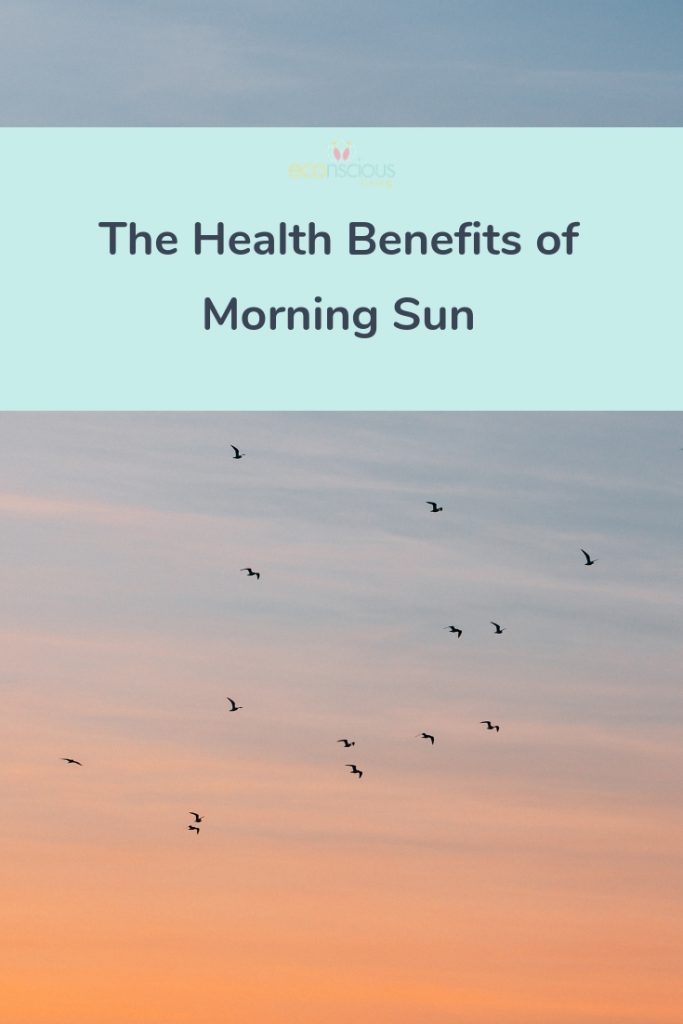
Then UVB pops out around noon (summertime in Perth). You can work out when UVB is present anywhere around the world by using the DMinder App so you know when you can make Vitamin D. Or just as importantly, you can work out when infra-red and UVA light is present.
Ideally, you need to see sunrise first thing, about an hour later grab some UVA and then later again absorb some UVB rays to make vitamin D. Can’t do it one day, make up for it the next.
RELATED: Blue Light From Screens: Why Our Children Need Protection
We buy supplements on a wing and a prayer hoping they’ll aid our insomnia, obesity, wrinkles, scars, mood, stress, fatigue, low sex drive… Yet natural light helps all this and more, not to mention it’s free!
Can you see that the sun is not just about Vitamin D? Our bodies are designed to experience the full spectrum of light. Without
It should be clear by now that you cannot substitute sunshine with a Vitamin D supplement.
Lifestyle is the key.
Tips for rising early and getting out in the sun
Remove sources of artificial light from your home
Of course, the average modern-day lifestyle now includes plenty of household items and activities that interfere with our natural circadian rhythm. For example, the lights we use in our home after dark and the devices we watch that produce junk light.
The first port of call when trying to adjust your sleeping pattern is to reduce or altogether exclude sources of artificial blue light from your home, particularly after sunset.
In short, avoid watching television, using your mobile phone, laptop or tablet, use candles (non-scented) and Himalayan Salt Lamps instead of regular light bulbs.
Glasses known as blue blockers are a must when it comes to blocking artificial light at night. They will dramatically improve your sleep – longer and deeper. These are the blue blockers I use because unlike most other cheap versions on the market they actually block blue and green light 100%. You can even have your own prescription or reading glasses made up in any of their lens colours. Econscious Living readers can get 10% off at BLUblox by using the code Econscious at checkout too!
Make your bedroom an EMF-free zone
As well as going to bed earlier and doing what you can to ensure you snooze off easily, it’s important to ensure your sleep quality is the best it can be, so waking up early doesn’t feel so hard.
To do this, remove anything you have control over that might emit electromagnetic fields (EMF) from your bedroom, such as televisions, mobile phones, digital alarm clocks, smart devices etc. I talk more about the causes of EMF in our home and how to reduce these in this blog.
EMFs disturb our sleep pattern, so banishing these as much as possible can help you wake up feeling refreshed, among many other health benefits!
Avoid sunglasses, contact lenses, sunscreen, or lots of clothes first thing
If you spend your precious early morning sun hours plastered in sunscreen or wearing sunglasses, contact lenses, or plenty of clothing, you are wasting the opportunity.
There are photoreceptors in your eyes and in your skin that communicate with the brain’s pituitary and pineal glands.
When red light and ultraviolet A (UVA) strikes these receptors it kicks into action your very own compound pharmacy. A beautiful hormonal cascade of melatonin, serotonin, and dopamine ensues.
All of this makes us feel great!
So don’t block the sunlight. You need natural light in your eyes every day. If you wear sunglasses and contact lenses you will not reap the benefits. Interestingly, when you wear sunglasses your skin via the brain does not get the message that your body needs to make vitamin D and as a result, you burn more easily.
In a nutshell, our biology is wired to light. Make the effort to start rising early and getting out in the sunlight before
When it comes to the sun; you snooze, you lose.
For a one-to-one eco consult about your lifestyle and how to make changes that will improve yours and your family’s health for the better, get in touch here.
This blog post contains affiliate links, which means that if you buy one of the products I recommend through a link here, I earn a tiny commission. I only recommend products that I, myself, use. I will never recommend to you something that I haven’t tried and tested! Please feel free to send me a message if you want to know more about any of the products I share on the blog.
Related Posts
What light is best for sleep?
What most of us don’t know is that the quality of our sleep is controlled by our light environment: both day and night.
Why You Should Have a Home Sauna for Better Health
Quite simply if there was a pill that did ALL the things that research is showing us saunas do, you would be taking it. Here’s why and my recommendations
Indoor Lighting – How Healthy Is It?
How toxic could an innocent looking lightbulb be? You’ll be surprised. There are plenty of health issues linked with indoor lighting, so how healthy is it?
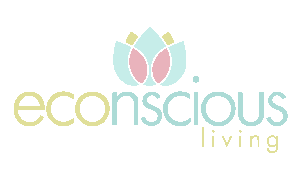
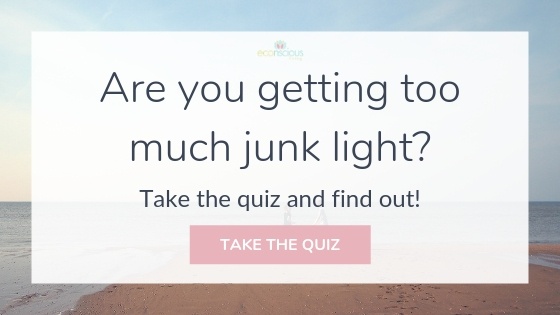




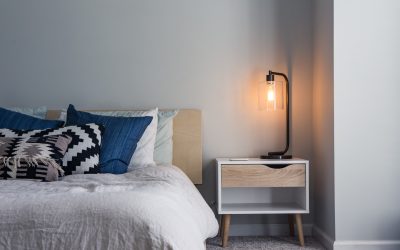
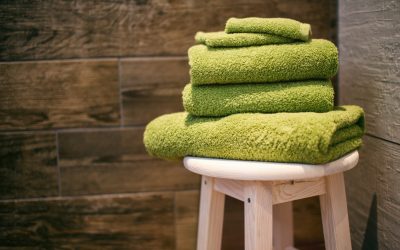
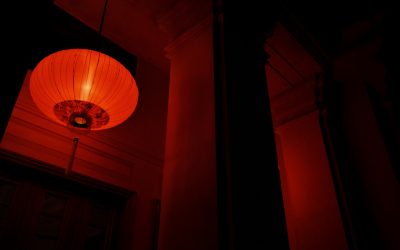
I see this is a pretty old post but I just wanted to say thanks for all the great info!! I just learned recently about the skin protecting effects of infrared sunlight in the morning and I am still amazed that it works that way. We try to get outside a lot at different times a day anyway but as a bonus, our two year old absolutely loves it when we wake her up early to go see the “red sun” at the beach! It’s about a 30 min drive for us and totally worth every minute. A friend recently told me she’s been trying to avoid the sun and use a self tanner and I don’t even know how to begin to approach that subject, I’m just so thankful that people like you are out there trying to get the right information out to the public.
Thanks, Sarah. Enjoy the sunshine:)
Thank you for this valuable information! Excited to meet the sunrise and soak up the light. 🌞